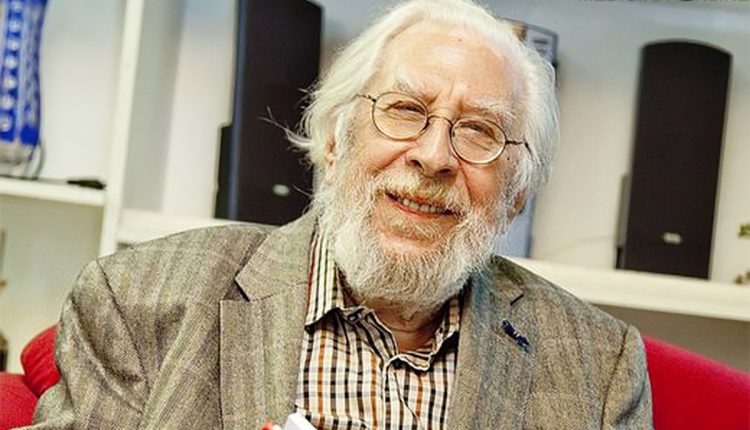
Heinz Prechtl: the concept of optimality and the five states of consciousness of the infant
Heinz Friedrich Rudolf Prechtl (6 July 1927 Vienna, 3 July 2014 Graz) was an Austrian researcher, physician, zoologist and anthropologist
Brilliant mind: he became a university professor at the age of 35.
As he himself recounted, at the age of eleven he regularly suffered from a ‘sore throat’, in reality an excuse that allowed him, instead of attending school, to observe and draw animals at Schönbrunn Zoo, fascinated by zoology and science in general.
CHILD HEALTH: LEARN MORE ABOUT MEDICHILD BY VISITING THE BOOTH AT EMERGENCY EXPO
Prechtl graduated in 1946 and completed his studies in medicine, zoology and anthropology
At his side was Ilse Zachau, a young zoology student who became his wife in 1948.
Ilse sadly died in 1971, after having three daughters.
During a lecture at the International Congress of Neurologists in Vienna in 1965, the researcher realised that the human brain behaves differently at different stages of development: this provided the impetus for the establishment of a new medical speciality, developmental neurology.
Prechtl was the first to research and describe patterns of movement and behaviour in early infancy and the foetus
Heinz Prechtl moved to Graz in 1993 after his retirement, where he carried out important research for the Prechtl method with Christa Einspieler as honorary university professor.
Together, they examined hundreds of infants and children and reported their findings to doctors and therapists all over the world.
The most important work to date on this topic was published in 1997 in the medical journal The Lancet.
Heinz Friedrich Rudolf Prechtl died on 3 July 2014 in Graz.
In addition to numerous international awards, two universities awarded him honorary medical degrees (Genoa and Graz).
In honour of his scientific work, Heinz Prechtl was honoured in 1991 by Queen Beatrix of the Netherlands as a Knight of the Order of the Dutch Lion.
Prechtl’s five states of consciousness
Heinz Prechtl dealt extensively with development in infants and devised his famous ‘five states of consciousness’ .
In addition to producing a series of motor responses in the form of reflexes, we know that an infant is able to extract information from its surroundings via its sensory receptors: sight, hearing, smell, taste and touch.
We now know that the child at birth is not deaf, blind and insensitive as was once thought: its perceptual systems largely function and are efficient.
Most of what the infant is able to perceive depends on what we call its state: whether it is asleep or awake, whether it is simply awake or alert and active, whether it is hungry or has just been fed.
Heinz Prechtl distinguishes five states of consciousness:
- deep sleep;
- active sleep (lighter than deep sleep);
- quiet wakefulness;
- active wakefulness;
- weeping and restlessness.
These states repeat cyclically throughout the day, on average about every two hours; for example, the infant goes from deep sleep to lighter sleep, restlessness and hunger, then to active wakefulness, after which he becomes sleepy and falls back into deep sleep.
Prechtl Method
During his time as a professor at the Department of Developmental Neurology at the University of Groningen, he succeeded in developing a method for assessing the prognosis of a child with cerebral palsy by observing his movement patterns: this is the so-called ‘Prechtl method’, which allows the exclusion or prognosis of the development of a subsequent cerebral palsy with 96% certainty.
Prechtl syndrome
Prechtl is believed to be the discoverer of ‘Prechtl’s syndrome’, a choreatiform movement disorder that manifests itself at school age and may be accompanied by involuntary (unwanted and uncontrollable) muscle contractions of the eye muscle and the muscle of the upper shoulder and arms.
This low-grade neurological impairment, first published by him in the Vienna Medical Weekly in 1957, can lead to major disorders and school difficulties for affected children and is still often misdiagnosed as ADHD.
Optimality concept
Prechtl was the inventor of the ‘optimality concept’, a method that allows us to make comparative scientific analyses on the basis of positive parameters rather than their absence.
Read Also:
Emergency Live Even More…Live: Download The New Free App Of Your Newspaper For IOS And Android
Paediatrics, What Is PANDAS? Causes, Characteristics, Diagnosis And Treatment
Pain Management In The Paediatric Patient: How To Approach The Injured Or Aching Children?
Pericarditis In Children: Peculiarities And Differences From That Of Adults
In-Hospital Cardiac Arrest: Mechanical Chest Compression Devices May Improve Patient Outcome
Stress And Distress During Pregnancy: How To Protect Both Mother And Child
Chronic Pain And Psychotherapy: The ACT Model Is Most Effective
Paediatrics, What Is PANDAS? Causes, Characteristics, Diagnosis And Treatment
Pain Perception In Children: Analgesic Therapy In Paediatrics
Obstructive Sleep Apnoea: What It Is And How To Treat It
Obstructive Sleep Apnoea: Symptoms And Treatment For Obstructive Sleep Apnoea
Our respiratory system: a virtual tour inside our body
Tracheostomy during intubation in COVID-19 patients: a survey on current clinical practice
FDA approves Recarbio to treat hospital-acquired and ventilator-associated bacterial pneumonia
Clinical Review: Acute Respiratory Distress Syndrome
Stress And Distress During Pregnancy: How To Protect Both Mother And Child
Respiratory Distress: What Are The Signs Of Respiratory Distress In Newborns?
Acute Hepatitis Cases In Children: Learning About Viral Hepatitis
Shaken Baby Syndrome: The Very Serious Damage Of Violence On The Newborn Child



